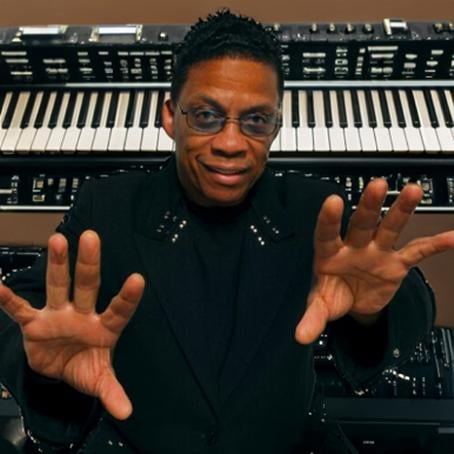Herbie Hancock, the iconic jazz maestro, whose career spans an impressive six decades, recently shared his perspective on the evolving relationship between musicians and technology. Beyond his prolific discography of 41 studio albums since 1962 and numerous awards, including 14 Grammy wins and 34 nominations, Hancock's relentless pursuit of innovation has made him a trailblazer in the world of music. He firmly believes that musicians should embrace new technologies, including Artificial Intelligence (AI), as creative collaborators while retaining control over their artistic direction.
Herbie Hancock's musical journey began with his debut album, which spawned the hit "Watermelon Man." Inspired by his childhood memories of a Chicago fruit vendor, the instrumental tune's joyful melody has been etched into the hearts of many. Over the years, Hancock's instinct for innovation became evident through his experimentation with electronic instruments. Notably, on his twelfth album, "Head Hunters," he reimagined "Watermelon Man" as a piece of jazz-funk, trading his acoustic piano for synthesizers and electric pianos.
Hancock's unique perspective on technology stems from his background in electrical engineering, which he pursued alongside his musical career. He embraced synthesizers when they first emerged on the music scene, recognizing their potential to create sounds previously unattainable with traditional instruments. His commitment to technological innovation led him to acquire his first computer in 1979, a time when computers were not yet widely adopted in the music industry.
In a recent interview with Scroll.in, Hancock discussed the possibilities AI presents for musicians. He envisions AI as a creative partner that can unlock new realms of creativity. While acknowledging that some purists prefer acoustic performances, he advocates for musicians to view AI as a tool to enhance their creative process rather than replace it. Hancock believes that AI's role in music will expand exponentially, providing personalized assistance and even responding to musicians' inputs. He emphasizes the importance of treating AI ethically, much like one would interact with another human being, to ensure responsible development and use in the music industry.
The profound insights shared by Herbie Hancock highlight the evolving dynamic between musicians and technology. Hancock's legacy in the jazz world is undeniable, and his groundbreaking work, ranging from his debut hit "Watermelon Man" to the genre-defying "Head Hunters," reflects his commitment to pushing the boundaries of musical innovation.
Herbie Hancock's simultaneous pursuit of music and electrical engineering has equipped him with a unique perspective on technology's role in music. His ability to seamlessly integrate electronic instruments and synthesizers into his compositions underscores his adaptability and visionary approach to music-making. Hancock's career is a testament to his capacity to embrace emerging technologies and leverage them to enhance his creative expression.
Hancock's vision of AI as a creative collaborator rather than a replacement resonates with those who appreciate the fusion of art and technology in music. This perspective aligns with the idea that musicians should harness AI's potential to amplify their creativity while retaining control over their artistic direction. It's a forward-thinking approach that encourages musicians to explore the vast possibilities AI offers in their creative journey, all while ensuring ethical considerations guide its development and implementation in the music industry.
For those aspiring to follow in the footsteps of musical visionaries like Herbie Hancock and effectively harness the potential of new technologies, including AI, pursuing a music degree or certificate program can be instrumental. At the Atlanta Institute of Music and Media, aspiring musicians can gain the knowledge and skills necessary to navigate this dynamic industry. The institute offers specialized programs in Music Technology, Recording and Music Production and Audio for Media, providing students with the expertise needed to collaborate effectively with AI and leverage technology as a creative tool. With the right education and a forward-thinking mindset, musicians can continue to push the boundaries of musical innovation, just as Herbie Hancock has done throughout his illustrious career.
